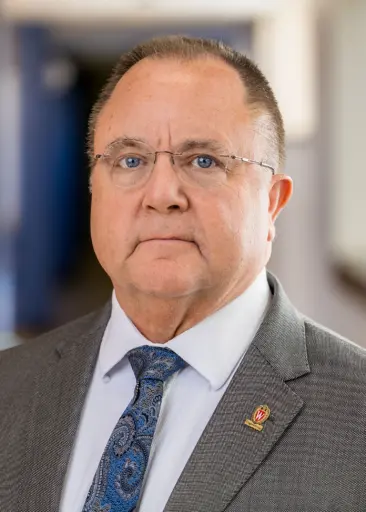Undergraduate engineering students at the University of Wisconsin-Madison will have the opportunity to join a program that will encourage them to dig into some of the world’s most pressing engineering challenges.
The UW-Madison College of Engineering has a proud history of training its students to be mindful of ways their knowledge and skills can help change the world. Now, the National Academy of Engineering Grand Challenges Scholars Program will leverage the college’s tradition of excellence and add an enhanced layer of knowledge development, engineering, experiences, entrepreneurship, global awareness and servant leadership skills.

“Some of the nation’s leading universities are part of the program and we’re very excited to be among that elite group,” says David Noyce, who is the Arthur F. Hawnn professor of engineering, College of Engineering executive associate dean, and director of UW-Madison’s NAE Grand Challenges Scholars Program.
Noyce says the program’s enhanced educational goals will combine to address the challenges set forth by the National Academy of Engineering. The program will provide undergraduate students a six-semester experience anchored around 14 challenges within four themes: sustainability, health, security and joy of living.
Students who participate will take courses or engage in initiatives that build talent, multicultural and multidisciplinary competency, social consciousness and viable business/entrepreneurship skills.
“This gives us an opportunity to create a sub-curriculum for students who want to venture outside of the core elements of engineering and take courses and engage in activities under this program,” Noyce says. “What often happens at many universities is that students are exposed to competencies as part of freshman experiences and are not revisited thereafter. Our Grand Challenges Scholar Program allows us to link this exploration to each year throughout our students’ college experience.”
Each major theme includes specific sub-focus areas, such as nitrogen cycle management or access to clean water within sustainability, or cyberspace security and restoring or improving urban infrastructure in the security theme. Noyce says these topic areas should help participating students focus on national or global engineering challenges. They also align with the Wisconsin Idea—the notion that UW-Madison’s knowledge and discoveries should benefit the state and the world beyond.
“It is easy for undergraduate engineering students to get tunnel vision and focus solely on the core elements of engineering,” says Noyce. “We also want to encourage them to look at engineering’s societal aspects, and to be aware of the ways in which they can contribute to solving today’s problems and those of our future. It’s about opening their eyes to the broader components of entrepreneurship, leadership, and global awareness that a lot of them might not see.”
In the college, the Grand Challenges Scholars Program will leverage several programs and opportunities already available to all of its undergraduate students, including study abroad, Engineers Without Borders, Engineering World Health, UniverCity Alliance, the Suzanne and Richard Pieper Family Foundation Servant Leadership Program, the Transcend and Boldt Innovation Competitions, Undergraduate Research Scholars, senior capstone programs, the UW Makerspace, and the Our Wisconsin program.
Students can apply to participate. Noyce says the first round of applications may be available during the spring 2021 semester, depending on the status of the ongoing COVID-19 pandemic, and more information on the application process will be provided to students at a later date. Students who are accepted also will be paired with engineering faculty members who will serve as mentors within their area of interest.
“We will help them find a faculty member, or the student can find one on their own,” Noyce says. “Once that’s established, there’s a formal written application to establish clarity on the student’s interest. We want to challenge them to join this program because they’re truly interested in digging into some of these societal problems at a greater level and making it part of their undergraduate studies.”